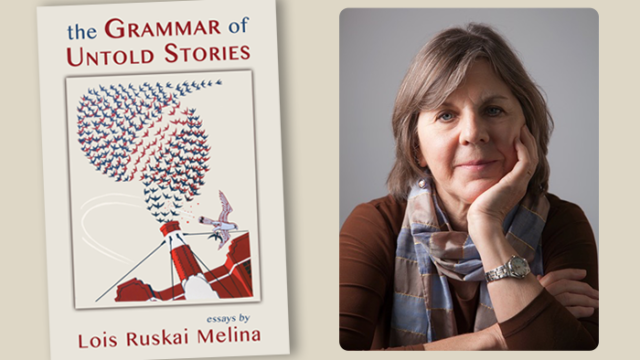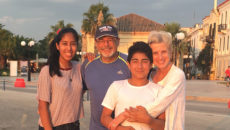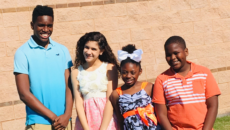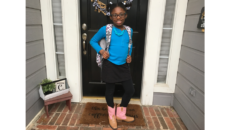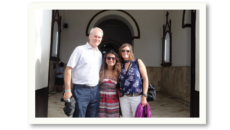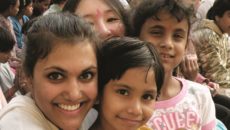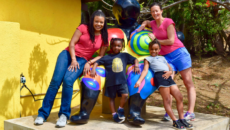Lois Melina has been a voice of wisdom and authority in the world of adoption for decades. We connected with Melina upon the publication of her latest book, The Grammar of Untold Stories,a collection of personal essays, to discuss immigration and international adoption, transracial adoption and the Black Lives Matter movement, and the many ways adoption and infertility continue to surface in her writing.
How to Be an Anti-Racist Adoptive Parent
For years, many white adoptive parents of children of color have sought to claim the relatively passive “not-racist” identity, but now is the time to push beyond self-examination into action and become an anti-racist family. Learn how to interrogate your own white privilege; talk with your child about systemic racism, the murders of George Floyd, Breonna Taylor, and too many others, and the resulting Black Lives Matter protests; and commit to working toward justice.
Mothering Children of Color Who Are Becoming Adults
As my children move into the world without me, I can’t protect them the way I could when they were little. I can’t assume that their lives and actions will be cloaked with the same privilege I was born with.
“I Can Still Be Shocked” – Encountering Ignorance About Adoption and Race
Fifteen years into parenting in a transracial family, I thought I had heard it all—with appropriate comebacks at the ready—until an interaction with a racist (former) boss left me simply dumbfounded.
“Almost Famous”
The day we became a transracial adoptive family was the day we lost our anonymity in our community. We’ve learned to handle the extra attention with some advance prep before going public, some choice words, and some perspective.
“Home Safe Every Night”
Isaac is 14 years old, but he’s six feet tall and almost two hundred pounds. He’s also black. He hasn’t been a discipline problem since the day he came home, but someone who doesn’t know him could see him as a threat. So what was I to do on a recent evening when he asked to bike home alone in the dark?
An Overview of Heritage Travel
Heritage travel can help your child understand her birth culture, and her origin story. Plan a trip that will work for your family by answering these questions.
Books and Articles for Introducing Race and Racism to Children
Want more resources on instilling a positive racial and cultural identity in kids, educating kids about racism, and learning more about your child’s ethnic heritage—and the stereotypes that accompany it? Start here.
“Bagels and Pho”
Was there a recipe for raising my daughter from Viet Nam? Holding her in my arms, I discovered that love was the prime ingredient.
Ask AF: How to Choose a School for Our Transracially Adopted Child?
A mother seeks advice in selecting a school for her daughter, who is biracial. How to weigh general diversity vs. specific racial representation vs. distance from the family’s home?
“Back to Bucaramanga” – Meeting My Daughter’s Birth Mother in Colombia
We set off on the 3,400-mile journey to meet my daughter’s birth mother in silence, our questions too big to put into words. In Colombia, communicating through an interpreter, but also through smiles, tears, embraces, and shared sensory experiences, all of us began to find answers.
AF’s, Complete Guide to Heritage Travel
Heritage trips help children discover their past — and inspire who they’ll become. Help your child prepare for the journey with these expert-tested tips.
Interview with Melissa Fay Greene
The adoptive mom and critically acclaimed author talks about her adoption of two brothers from Ethiopia, the AIDS crisis in Africa, and Haregewoin Teferra, the foster mother at the center of her book, There Is No Me Without You: One Woman’s Odyssey to Rescue Her Country’s Children.
Journeys of Discovery
A homeland trip can help kids connect “where I come from” to “where I’m going.” Having traveled with thousands of adoptive families, I’m delighted to share my thoughts on the impact of homeland travel on identity formation.
[EXCERPT] That Kind of Mother
In this excerpt from That Kind of Mother, by Rumaan Alam, the white adoptive mother of a black child learns about importance of talking with her son about racism and interactions with the police.
Primer for Talking About Race and Racism
Racism exists, and it’s our job as parents to talk about it with our kids. Start with this glossary of important terms.
Reading List: Learn About Your Child’s Birth Country
These books can help your child connect with her birth culture. Add your family’s favorites in the comments!
“Our Journey to China to Adopt Our Daughter”
We left our house this morning a family of three, but the next time we walk through our front door, it will be as a family of four.
How to Support Your Teen’s Developing Racial Identity
Embracing your child’s racial identity means embracing his friends, too.
The Talk: Revealing the Realities of Racism to My African-American Child
Growing up in Trinidad, I didn’t use the word black to describe myself. But as the mother of two black children in the U.S., I walk the fine line of raising them to believe they are capable and worthy while understanding that everyone in this country has been taught to discount their value.
